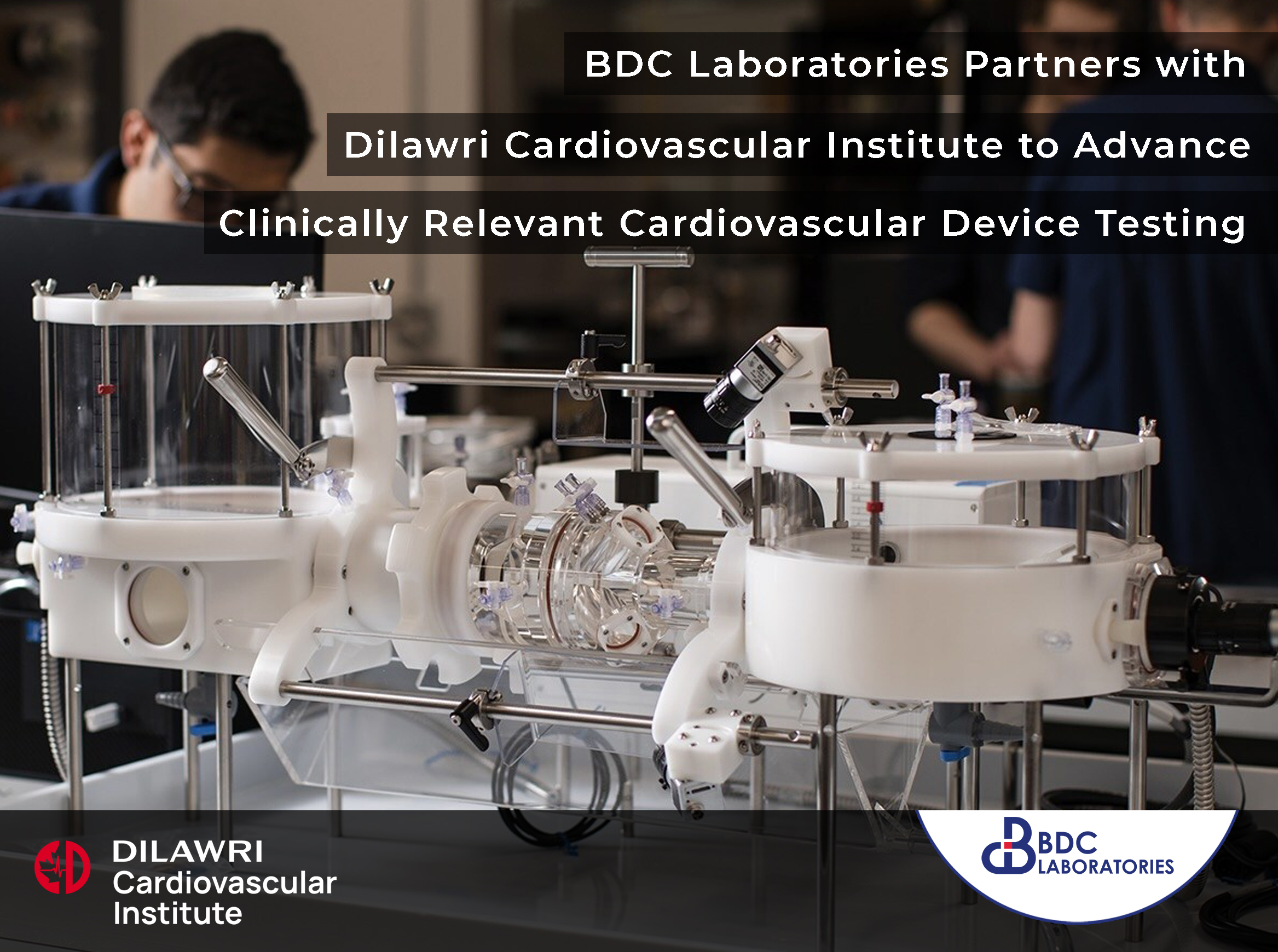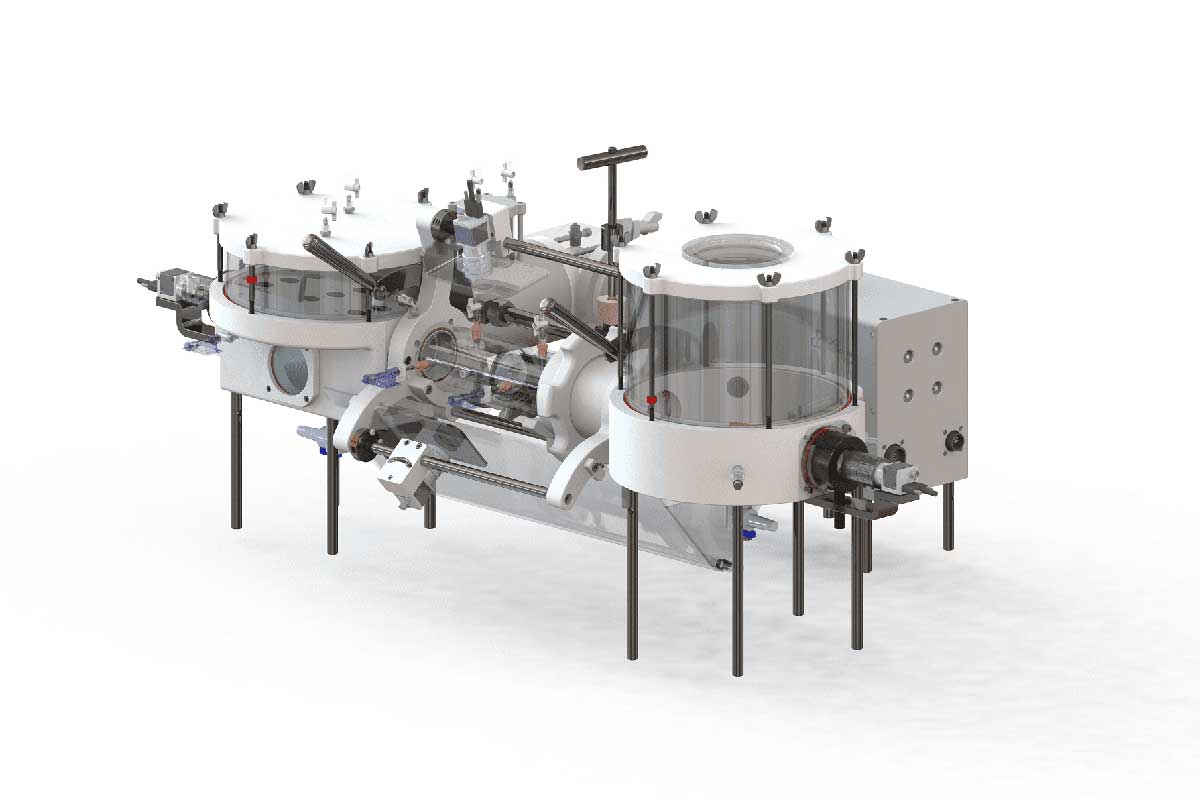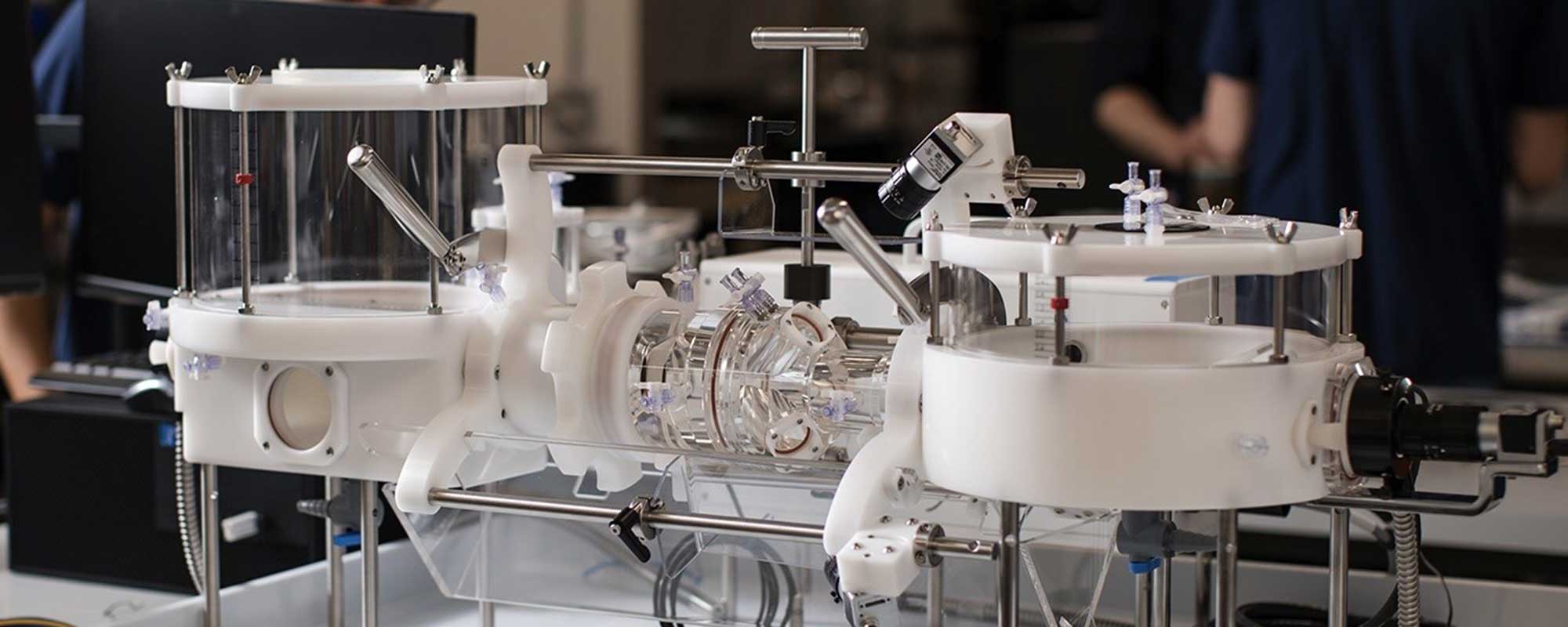
Advancing clinically relevant cardiovascular device testing
The Centre for Cardiovascular Translational Science is excited to announce a new strategic partnership with BDC Laboratories, a recognized leader in cardiovascular testing solutions. The organizations will work together on the development and clinical validation of cardiovascular medical devices that more accurately reflect the evolving realities of cardiovascular care.
From bench to clinical practice
BDC Laboratories offers testing services and products to support the evaluation of Class II and Class III medical devices on the path to regulatory approval. A key piece of equipment involved in the partnership is a state-of-the-art hydrodynamic tester, the HDTi-6000, notable for its reproducibility, adaptability, and precision. The machine will allow for the testing of new types of artificial valves and modeling of different valve configurations to simulate real-world clinical conditions and aid in patient treatment.

The HDTi-6000 is capable of capturing video footage of heart valve tests which can be synchronized with pressure and flow waveforms to allow operators to assess heart valve leaflet response in real-time and at any point in the cardiac cycle upon playback. Previous uses of this type of equipment have been featured in leading publications by investigators in Vancouver that are considered the “first of a kind.”
The Centre for Cardiovascular Translational Science leads initiatives in device testing and simulation to serve academic, clinical, and industry partners. It focuses on the development and evaluation of transcatheter heart valve technologies using equipment and protocols that reflect real world challenges facing clinicians. Examples of these challenges include the need to assess bioprosthetic valve performance over time and re-intervention techniques. Increasingly, it will also be important to be able to simulate triple-valve testing scenarios and account for diverse artificial root anatomies.
Collaboration for better innovations and outcomes
There is progress that can be made to improve clinicians’ ability to anticipate and address emerging challenges, and potential to deliver more meaningful, evidence-based outcomes for patients through proactively using research to inform the design of test equipment and testing protocols. As Stephanie Sellers, PhD, and Director of the Centre for Cardiovascular Translational Science explains, “we integrate both biological and engineering components to build more clinically representative models that reflect the real challenges our clinical colleagues face every day. Our goal is to help our partners develop truly excellent devices. If our models can shift the needle even one percent in terms of clinical outcomes, that’s a meaningful win.”
Remarking on the speed at which innovation occurs in the field, Craig Weinberg, PhD, and CTO of BDC Laboratories says that “[it] often moves faster than the regulatory guidance documents utilized for evaluation. [By] working closely with clinical experts, like Stephanie’s team, [we] can make sure our testing solutions reflect where the field is going while simultaneously maintaining alignment with current requirements.”
The Centre for Cardiovascular Translational Science is grateful to BDC Laboratories for their support and confident that this partnership will significantly shape the development and testing of the next generation of cardiovascular medical devices and other technologies that truly meets the needs of clinicians and their patients.
”“We integrate both biological and engineering components to build more clinically representative models that reflect the real challenges our clinical colleagues face every day. Our goal is to help our partners develop truly excellent devices. If our models can shift the needle even one percent in terms of clinical outcomes, that’s a meaningful win."
Dr. Stephanie Sellers





